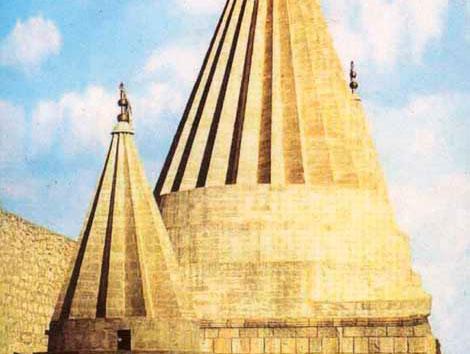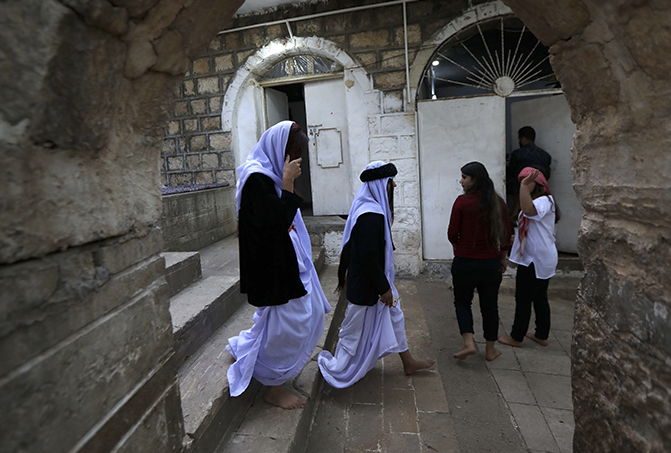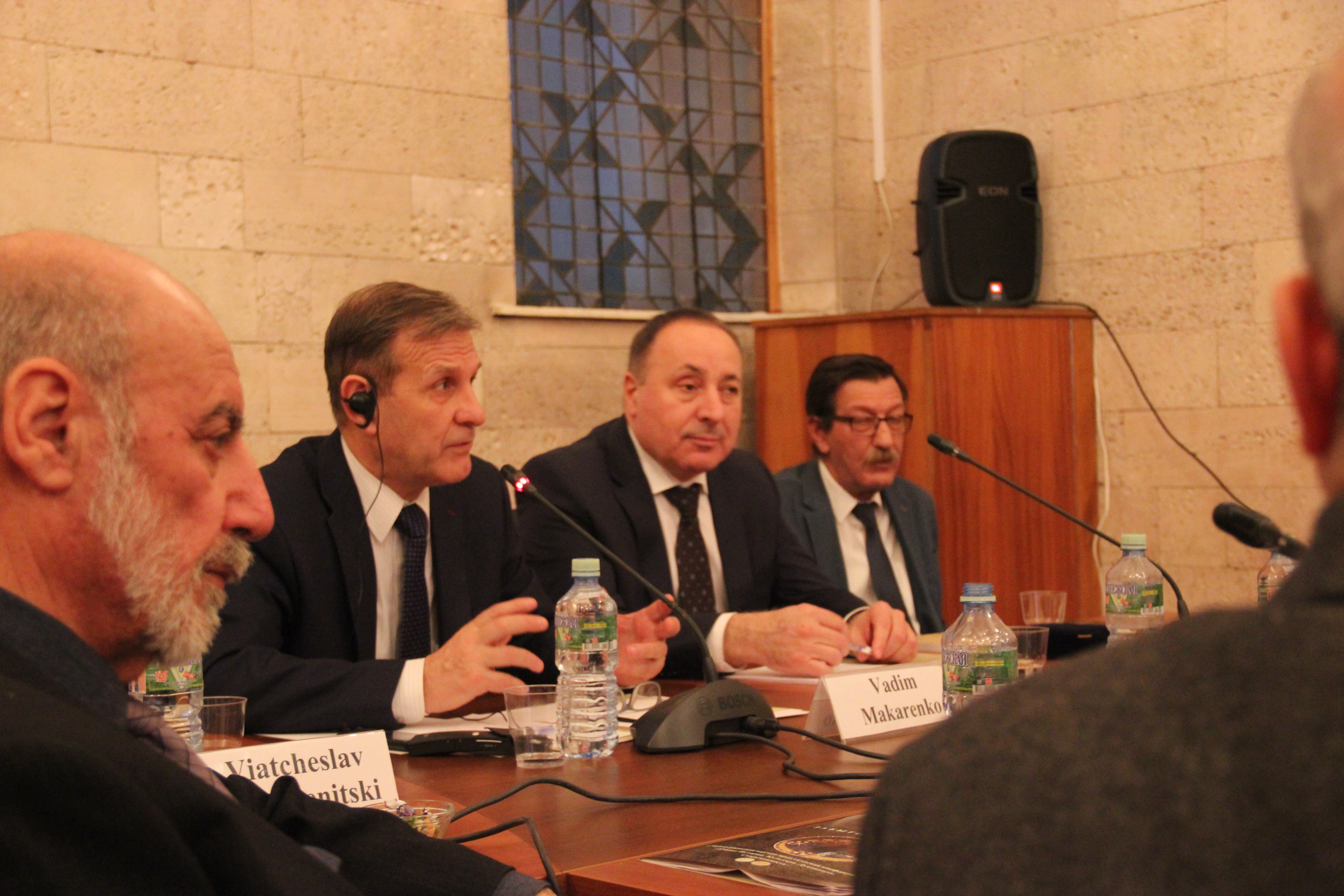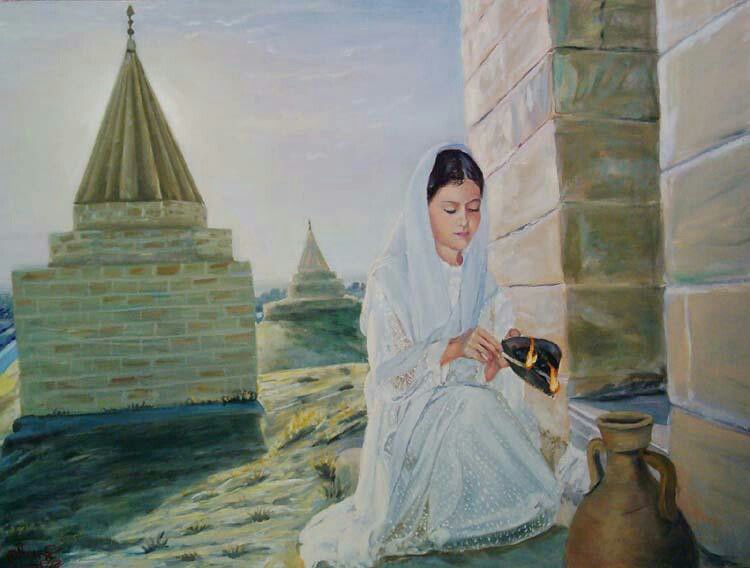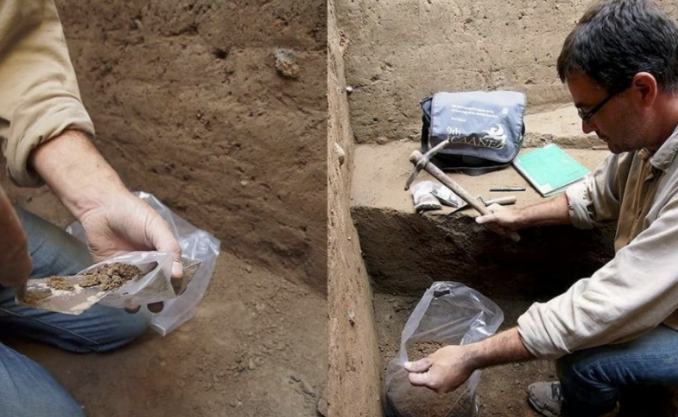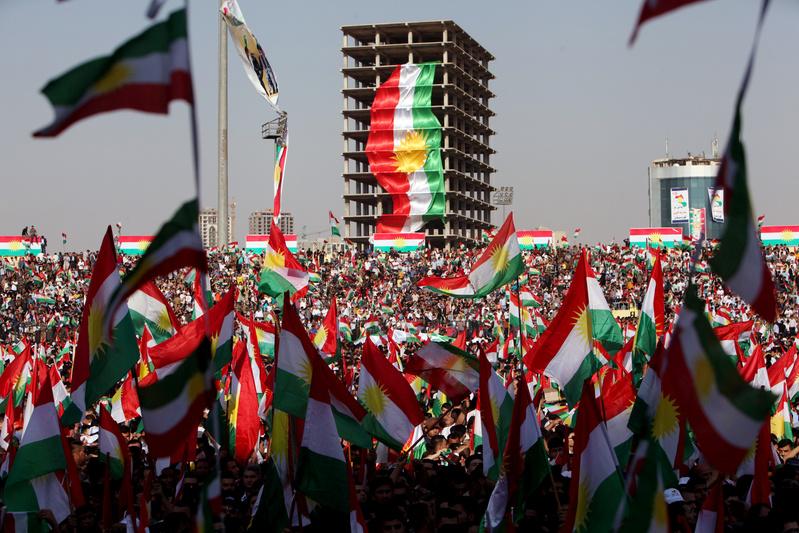Articles
Observations in Kurdistan: Mutual respect promotes progressMaya Saeed / 16 августа 2017 года As a young Kurdish woman who has grown up in Germany and visited Kurdistan throughout the years, I have witnessed many things have changed, especially in Erbil. Some are obvious, such as how much the city of Erbil is growing. More coffee shops have opened, as well as more malls and shopping centers. This makes it possible for people to go out and enjoy their time with family and friends. |
Never again, again: The Yazidi GenocideSareta Ashraph / 14 августа 2017 года On 15 August 2014, ISIS fighters ordered the Yazidis of Kocho to assemble in the village school. The women and younger children were forced upstairs while, on the ground floor, ISIS fighters divided the men and older boys in groups before leading them away. This moment, three years ago today, marked the first step in the destruction of the last intact Yazidi community in Sinjar, northern Iraq. |
Don’t forget the Yazidis: To avoid the next genocide, remember the lastTom Holland / 11 августа 2017 года As the floodwaters subsided, the Ark drifted across northern Iraq. Finally, with a crunching jolt, it hit dry land. Its timbers had scraped the peak of a mountain range called Sinjar. Water began to pour in. Fortunately, a black serpent, its coils as thick as an arm, moved to plug the breach. The Ark did not sink. |
Yazidi minority refugees worry about the future of their cultureSimon Albaugh / 4 августа 2017 года |
Who Are the Yazidis and What Happened to Them?James Carroll / 3 августа 2017 года The Yazidis are a religious minority who reside mainly in the Nineveh province of northern Iraq and also in parts of Syria, Iran, and Turkey. Although they are monotheists, they are syncretistic observing a combination of Zoroastrianism, Islam, Christianity, and Judaism beliefs. Perhaps because of their lack of specific identification with any of the great religions, they have been set aside from most of the day’s news. |
The Genocide of Yazidis is Not OverLiz Olson / 1 августа 2017 года The women and girls victimized by IS deserve to see their persecutors held accountable for their crimes in an international court. |
Why Pope Francis should visit Kurdistan regionChiman Salih / 31 июля 2017 года Kurdish writer Chiman Salih explains why Pope Francis should make history and visit the Kurdistan region. According to her, the Christians in the region are considering seeking refuge in other countries, which would destroy the region’s unique ethnic and religious diversity. However, a visit by Pope Francis will most likely convince most of them to return to their homes. |
Slaves of Isis: the long walk of the Yazidi women/ 24 июля 2017 года The day before Isis came was a holiday in Sinjar district, northern Iraq. Yazidis gathered to celebrate the end of a fasting period. It was 2 August 2014. Harvested wheat fields stood short and stubbly under the shadowless sun. People slaughtered sheep and gathered with their relatives to celebrate the holiday, handing out sweets and exchanging news and gossip. |
On the Kurdish question: history and presentpmli.it / 20 июля 2017 года The Kurds are a people with no recognized motherland. This people, that proclaimed themselves to be so in 600 AD, currently live in the mountain region where they have always lived—Kurdistan, with a population of almost 30 million people, stretching over a 500,000-square-kilometer wide territory in six countries of the Middle Eastern and Asian area: Turkey (south-east), Iraq (north-east), Syria (north-east), Iran (west), Armenia (south) and Azerbaijan (south-west). Most of Kurdistan is located within Turkey’s borders, in an area of about 230,000 square kilometers (30% of the Kurdish territory). It is a territory strategically relevant as it is rich in petrol and water resources. 75% of Iraq’s oil comes from here, Turkey’s only oil fields and Syria’s most important ones are in Kurdistan, and oil is produced also in the Kermanshah area, an Iranian region inhabited by Kurds. The country occupies most of the mountain region stretching north from the Black Sea, until the steppe of Mesopotamia to the south, beyond the Zagros mountains to the east. This area of high mountains—some of them, such as Mount Ararat, are higher than 5,000 meters—is the source of several rivers, including the two great Biblical rivers, Tigris and Euphrates, flowing for hundreds of kilometers before reaching the Arabian lands of Iraq and Syria, and finally rushing into the Arabian-Persian Gulf. Some important communication ways also must necessarily pass through this territory, for example between Central Asian republics, Iran and Turkey, and it is at the core of one of the hottest points of world politics. A geopolitical position that has heavily conditioned the history of the Kurdish people. |
Turkey demolishes Kurdish poet Ahmadi Khani's statueAri Khalidi / 27 июня 2017 года |

